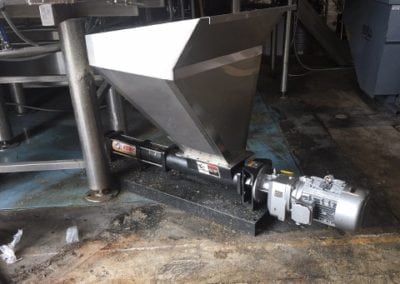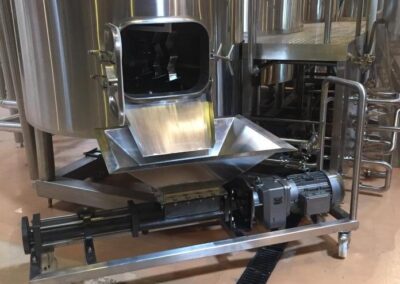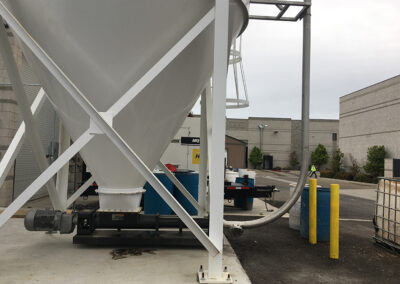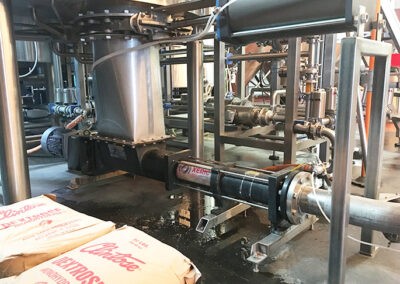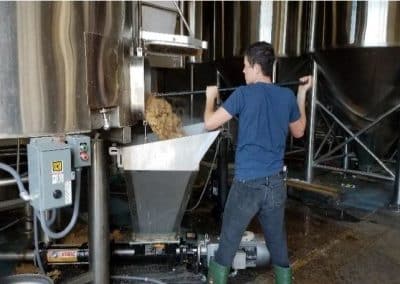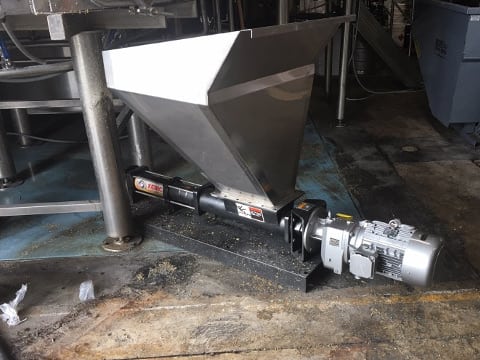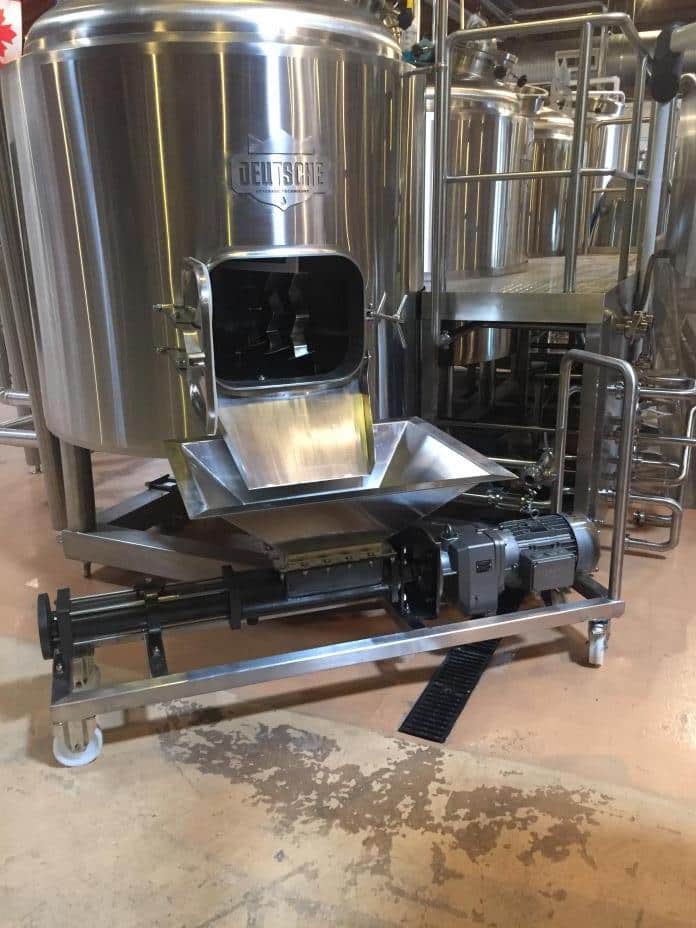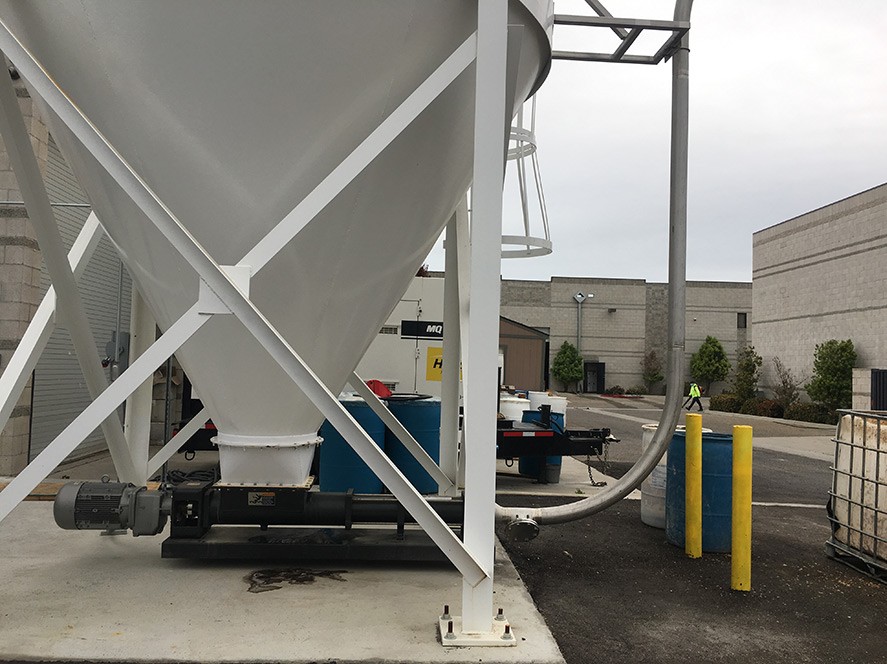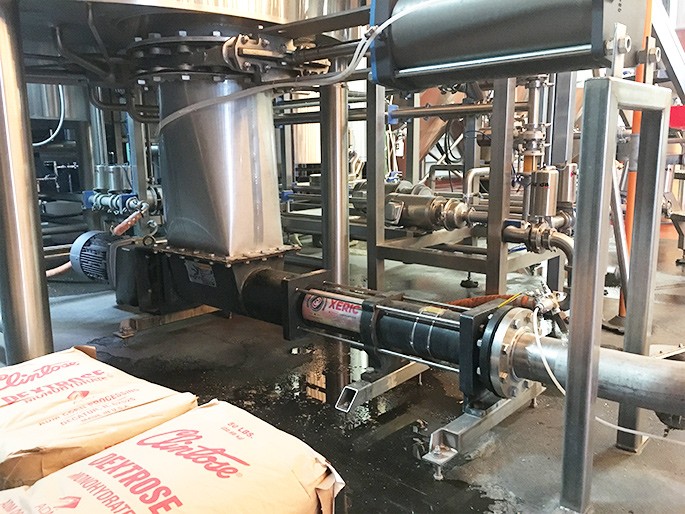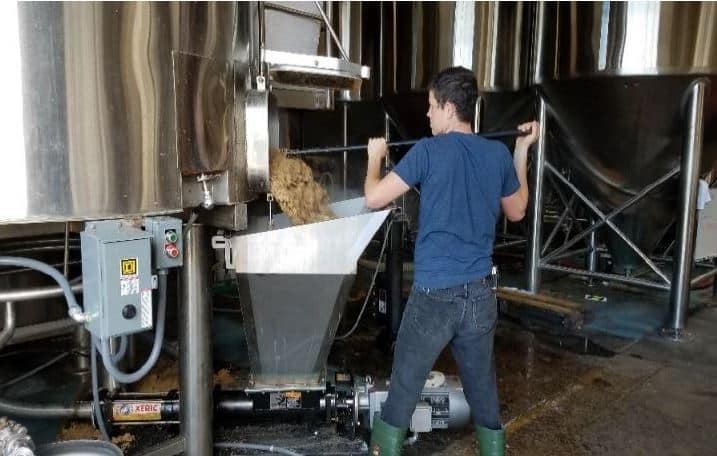Spent Grain Pumps
Spent grain is an extremely difficult material to work with. Traditional conveyance methods become problematic quickly and even many solutions specifically designed for it barely work. But there is a solution.
As a division of ABM Equipment we’ve moved, processed, packaged, and inspected just about every substance by every method under the sun… and spent grain might be the most difficult. It’s heavy, it bridges, it stinks, and if you take too long, it gets stuck. But it’s not impossible. If you have a short, straight shot to your silo, you can take a shortcut; just ask us about screw conveyors.
But if your path is long or winding, there are two manufacturers who stand by their warranties that and popular in the space… followed by a third option.
Netzsch Pumps
Netzsch progressive cavity pumps were long the industry standard. The problem with them is the rubber stators, which cost about 1/5 the cost of the pump and would burn out when run dry. Brewers tried simply not running them dry, but with how inconsistently spent grain flows (or doesn’t) intermittent dry runs were inevitable, and costs were high. Netzsch tried fitting them with sensors to automatically stop when dry-running was detected, but because the sensors relied on temperature, damage was already done by the time the pump switched off. On the nightmarish end of the spectrum, one of our larger customers were spending over $100k/yr replacing stators.
Already have a Netzsch pump? We can replace their stators with metal ones which work and cost roughly the same amount — and can run dry.
Ponndorf Pumps
The Ponndorf is an air pump that uses compressors to generate air “slugs” that push the spent grain through the lines. The benefits are that they are less expensive than other options and can run dry, and their drawbacks are that the curves in the line must be broad and you must maintain specific spent grain consistency to keep things running smoothly. If the grain gets too wet it becomes too heavy, and if it’s too dry air will puncture through the grain. But instead of running dry and damaging the pump, the fix is simply to flush it with more air.
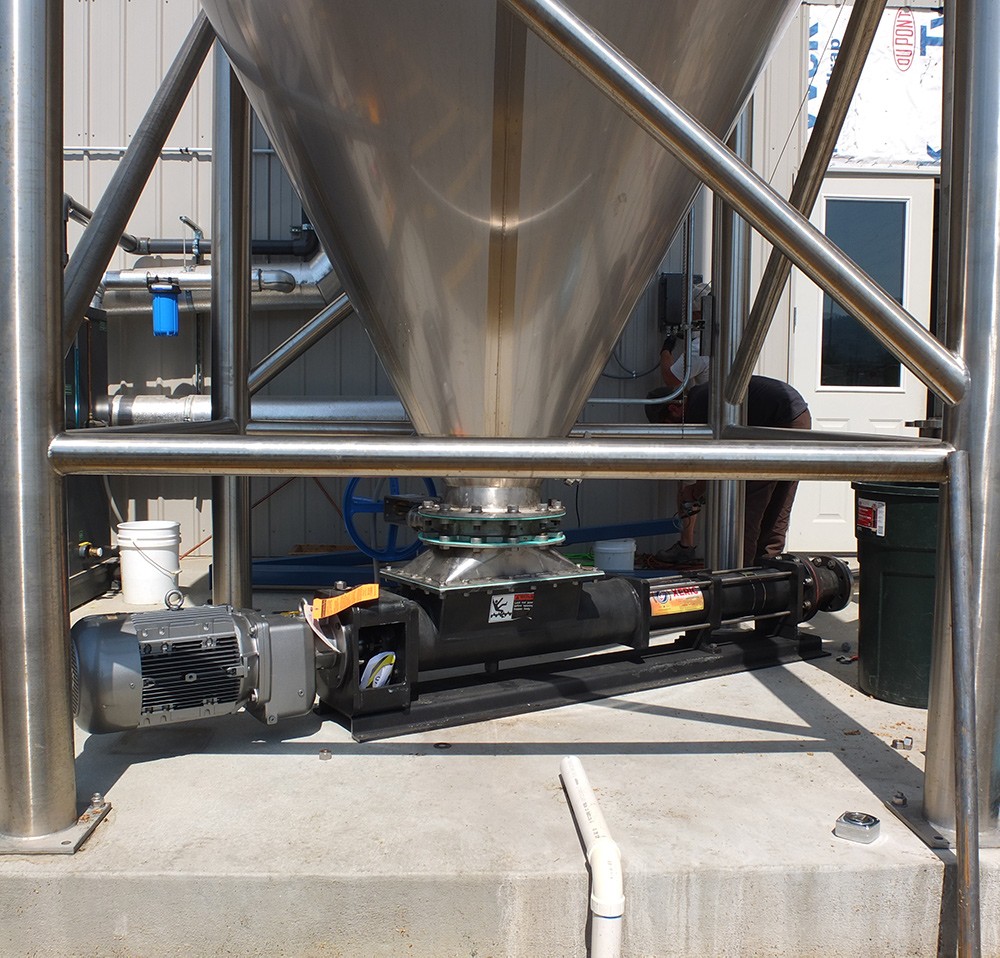
Experimental
If you’re willing to try something new, let us know! There are a number of pumps that have not been tested in the field and we want to test them, but we need brewers who are willing to team up with us. The manufacturers we have in mind are willing to sell pumps at or below cost, and we are willing to provide labor below cost, and we’re looking for brewers who are also willing to take a risk.

